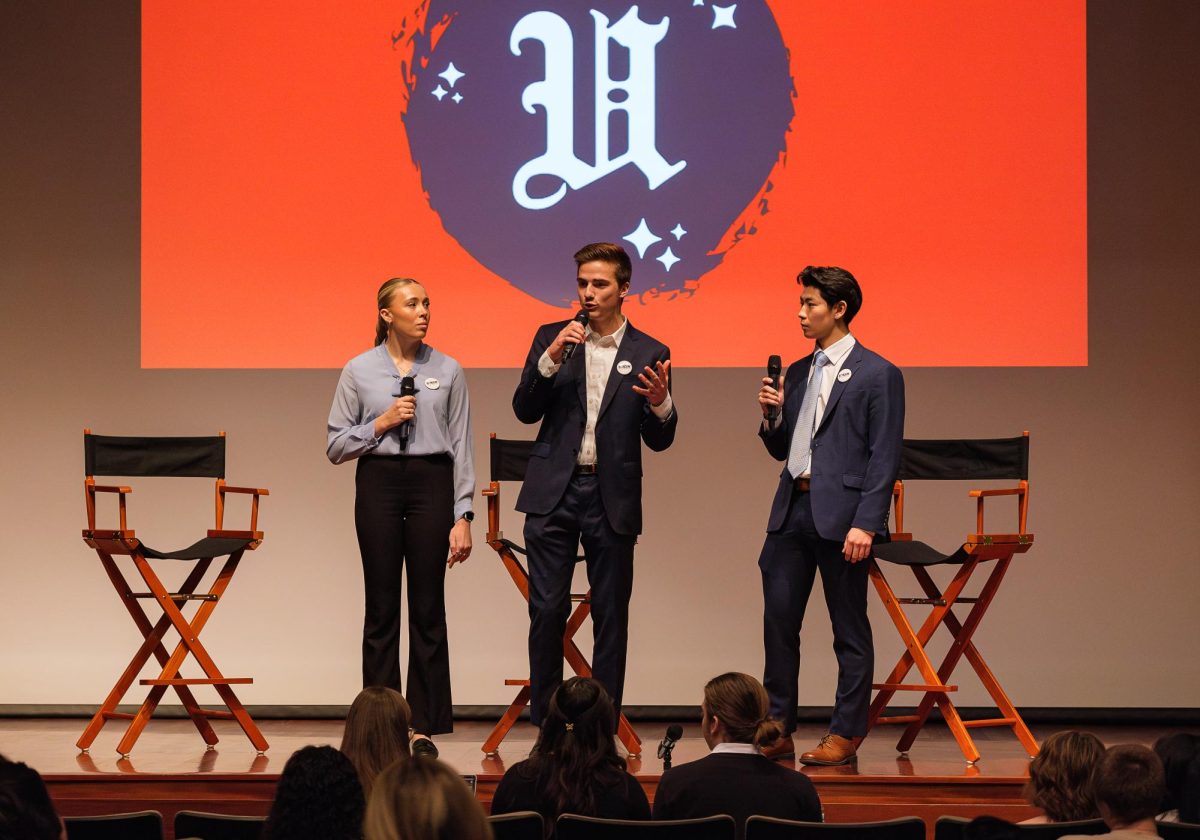The U’s Future in an Evolving Pandemic
(Graphic by Jose Alex Garcia | The Daily Utah Chronicle)
September 6, 2021
In mid-December 2020, the first COVID-19 mass vaccinations were administered in the United States. Since that time, COVID-19 cases in and around the University of Utah have decreased, while vaccination rates have increased.
Following this positive trend, the U announced most classes will be offered in person this fall 2021 semester. In a recent press release, the U announced: “as COVID-19 vaccinations increase and infections in the community decrease, the University of Utah will provide an in-person experience for every student who wants one in the fall.”
Chris Nelson, director of communications at the U, does not think the U community will ever go back to what some had considered to be normal.
“I think most students now are in at least one online course,” he said. “And I think it has something to do with the pandemic, but also, I think it has to do with the way education continues to change. Some of those classes are just working for students to take online.”
Nelson said that about 85% of classes will be in person this fall, while about 15% will continue to be online. Furthermore, in accordance with the state of Utah and the CDC, the U will not be requiring masks on campus or proof of vaccination for students attending in person.
“What we’ve tried to do is just make decisions based on CDC recommendations, making sure we’re in alignment with state law,” Nelson said.
Nelson explained because the COVID-19 pandemic has been so politicized, there are groups that are for and against the current decisions made by the University — something the school has dealt with since the beginning of the pandemic.
“I think what the University is trying to do throughout this time is to be as agile as possible,” he said. “If conditions change, if we learn new facts, the University wants to be adaptable. However, we’re optimistic with the vaccine, and the prevalence of the vaccine and the ease of getting the vaccine.”
Even though COVID-19 still remains a prevalent issue, the U wants to make the fall semester as normal as possible, given the present circumstances. In the same press release, the University said it hopes fall 2021 can be closer to what higher education was before COVID-19.
As the U returns to campus and restrictions ease, many things will start to go back to the way they were before the pandemic hit the United States. For some, life will be back to normal while for others with chronic illnesses or those who are unable to be vaccinated, COVID-19 will still remain a threat.
A mixed population of students who do and do not see COVID-19 as a threat could lead to a potential culture of shame on campus as well as some confusion.
“I think it’ll be really confusing time because one of the things that is unusual about the pandemic is that public health measures got conflated with political beliefs and their expressions,” said Lisa Aspinwall, professor of psychology.
Aspinwall explained how at one point it was obvious what someone’s approach to the pandemic was by how they presented themselves.
“The things that people would use to tell what someone’s approach was to the pandemic, whether they were masked or not, are pretty much going to be reversed now,” Aspinwall said.
According to Aspinwall, it is going to be harder to tell who has taken the recommended precautions and who has not, because these signifiers, like wearing a mask, have different meanings in the summer of 2021.
“I think people will have lots of blame and shame to go around, but knowing who to blame is going to be a lot more difficult,” she said.
The U released a statement revoking the mask mandate and encouraging students to still be respectful of an individual’s decision on mask-wearing.
“I think that the messaging has started from the University and needs to continue that we shouldn’t hassle those people,” Aspinwall said. “In fact, they’re protecting everyone else.” Aspinwall said it should not matter whether someone decides to wear a mask because they are chronically ill or because they have an elderly family member at home.
“We should respect what they’re doing and not brand them as people who are overly anxious or concerned about their health,” she said. “Similarly, for students who prefer to stay online and do those interactive video or other online classes, I’m glad that choice is there.”










John Hedberg • Sep 7, 2021 at 8:53 pm
I’m someone with an underlying health condition affected by COVID, so I went looking for 2 Pfizer shots as soon as they became available. Last Monday, I was diagnosed with COVID-19 anyway during a routine test, and I spent an afternoon in the ER getting therapeutic treatment, just to make certain I’d stay clear of a respirator.
The irony is that I’ve been vaccinated less than 6 months, and I won’t even qualify for a booster (3rd) shot until the end of the semester according to the government health authorities, but I caught a breakthrough case anyway. Looking at the Utah coronavirus website, about 20% of current COVID cases in Utah are among those already vaccinated. https://coronavirus.utah.gov/case-counts/
It doesn’t make sense to shame anyone about their own logic in making private health decisions. It’s beginning to look like the only real way to be safe from COVID-19 is to get sick with it, so you’re no longer susceptible.
I wish everyone a healthy, happy, and rewarding semester. Keep your chin(s) up!
Best, with Love
-J